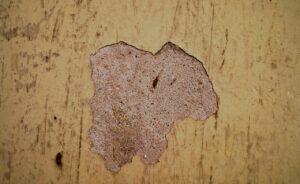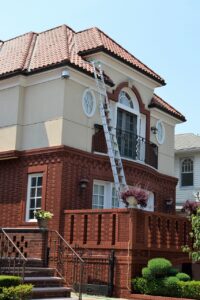There is no law or regulation in Massachusetts which requires home owners to have their homes inspected before putting them on the market and no law or rule which requires prospective buyers to have a home inspection before sealing a deal on buying a property. It is totally up to the buyer to organize a home inspection to provide information about the suitability of the property they are contemplating buying.
Home inspectors do not provide a pass or fail result
When a potential buyer has got to the point of hiring a home inspector to survey a prospective home, there is no expectation that the inspector will confirm whether the home is worth buying or not. That will be up to the person or persons who requested the inspection, after reading the inspection report and deciding whether to continue with the purchase or negotiating with the seller about the price. In fact, home inspectors have a professional duty not to give a money value of the home. They can advise the potential buyer about the pros and cons of the purchase in their opinion and what might be needed to make the property safe and comfortable as a home.
What does a home inspector actually inspect?
What the home inspector actually inspects depends partially on whether it is a new build or a home that was built some time ago. Stand alone homes are likely to need a more extensive inspection than, say, an apartment or condo. The older the home to be inspected, the more extensive the inspection should be.
The main value of a home inspection is that it can provide warning about issues that could cost thousands of dollars to fix which you may not be aware of without an inspection. Not every seller or realtor may realize what the downside of the properties they are trying to sell might be. There might be safety issues, such as rot, termite damage, ageing unsafe wiring, deteriorating septic systems, leaks and cracks that have been overlooked. Many of these things will be uncovered during a thorough home inspection.
When the home inspector is called to make a preliminary inspection, he or she may recommend a more specialized inspection. Not every part of a home is necessarily inspected in a general home inspection. For example, unless a home was built before 1978, there may be no requirement to check for lead paint used in the interior. Garages, or other external buildings, may not be inspected unless specifically asked for. There may be a need for a more specialized inspection of septic systems.
So, what does a home inspector actually inspect? The list below gives an idea of what you can expect from the average home inspection.
- the foundation: a check for any significant cracks in the walls, potential or actual sink holes, cracked windows, cracks in any of the walls;
- outside walls: check for wood boring insect damage, including termite infestation if the walls have any timber in them;
- roofs: any sign of damage caused by water ingress, gutter condition, condition of the shingles, especially if they are loose or not secured properly;
- inspection of electrical supply: connections and wiring to the home to ensure that there are no potential surges or shock points;
- plumbing condition: plumbing system including supply, sewage lines, but not the septic system;
- kitchen appliances: inspection of main appliances in the kitchen including ovens, dishwashers, blenders, grinders, etc.;
- HVAC system: assessment of the air conditioning, heating and ventilation infrastructure;
- grading: check to make sure that ground levels allow water flow away from the home;
- the attached garage: check to see that doors open and close as they should, ventilation installed, visibility of the garage framing.
It is highly advised that the potential buyer is present at the same time that the home inspection takes place.
What a home inspection may not cover
The average home inspection may not include everything you may be interested in checking. You will need to check with the home inspection agency what is included and what may be excluded unless specifically requested. Typical things that might not be included are:
- sheds and garages that are not part of the main building structure;
- water supply if it is not on mains, for example, is from a well;
- septic systems;
- swimming pools;
- lead paint or asbestos risks;
- mold and moisture ingress;
- integrity of any existing chimneys.
Things that are not covered in a general home inspection may be inspected by a more thorough, specialized inspection. The inspector during a first inspection may suggest that a further inspection of certain things not normally covered as listed above should be done. A more specialized inspection may get to the roots of certain defects noted in the initial inspection in addition to other inspections.
Home inspection contingency
A home inspection contingency clause means that the purchase of the home is contingent on the result of the home inspection. Even if a deposit has already been paid, the contingency clause allows the prospective purchaser to back out of a purchase agreement if the home inspection reveals issues that the purchaser is not happy about and may include expensive repairs or modifications which may not have been obvious before the inspection. Usually, there is a time period, typically 7 to 10 days, which allows the prospective purchaser time to read the inspection report and digest its content and decide whether to proceed with the purchase or back out and ask for the deposit back.
Home inspections for the seller
There is less pressure on the seller to organize a pre-sale home inspection, but there are often good reasons to have one. A home inspection helps to identify flaws in the home before the property is advertised for sale. The seller can then decide whether to make the necessary repairs before it is listed, or adjust the sale value that it was going to be listed for. Issues that are not remedied can still be included in the property disclosure statement. A significant number of sales fall through because of defects that are discovered that were not listed in a disclosure statement.
For more information, visit our website Mucci Legal or contact us for a free initial legal consultation today.


